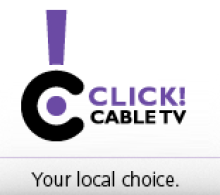Click! Partners with Community Media to Push Local Content
The American Cable Association has profiled Tacoma's Click! network. Click! is an HFC network owned by the city, via the public power utility. Tacoma Power only offers one retail service: cable television. Voice and broadband data services are provided by independent services providers who use the network on an open access basis.
The network has been quite successful. Some 25,000 households subscribe and it has kept competitor rates (Comcast, for instance) far lower than nearby Seattle, for instance. I previously noted the economic development victories attributable to the network.
"If you're a cable TV customer or an Internet customer of any company in our footprint, you pay between 35% and 49% less than if you are not in our footprint," said Diane R. Lachel, Click! Network's Government and Community Relations Manager. "That's really significant. That's what the Telecom Act of 1996 was all about. That's the kind of competition Congress intended."Other communities aspiring for successful networks should study the approach of Marketing and Business Operations Manager Mitch Robinson. Click! has embraced local content - something every community should do to differentiate itself from absentee-owned incumbents.
One Robinson innovation was the localization of video-on-demand (VOD). The inspiration for this product was the lack of Tacoma community news from the TV stations based in Seattle, about 30 miles northeast of Click!'s headquarters. Tacoma tends to make the local TV news mostly when the news is bad. In response, Click! decided to build relationships with a multitude of local nonprofits to create a steady inventory of VOD segments exclusively available to Click! viewers. One VOD service, called Safe Streets, shows how to energize a neighborhood by curbing gang activity, setting up block watches, cleaning up derelict properties, and scrubbing away unsightly graffiti. Click! also has exclusive VOD rights with The Grand Cinema, a local independent movie theater that also sponsors local film festivals. Through the Click!



